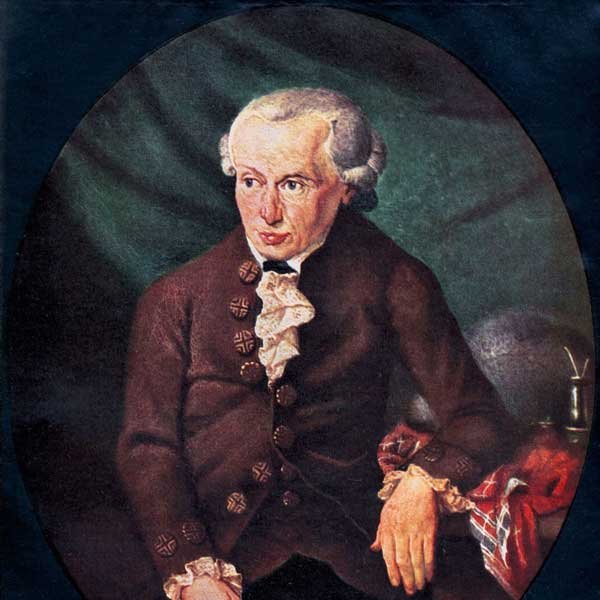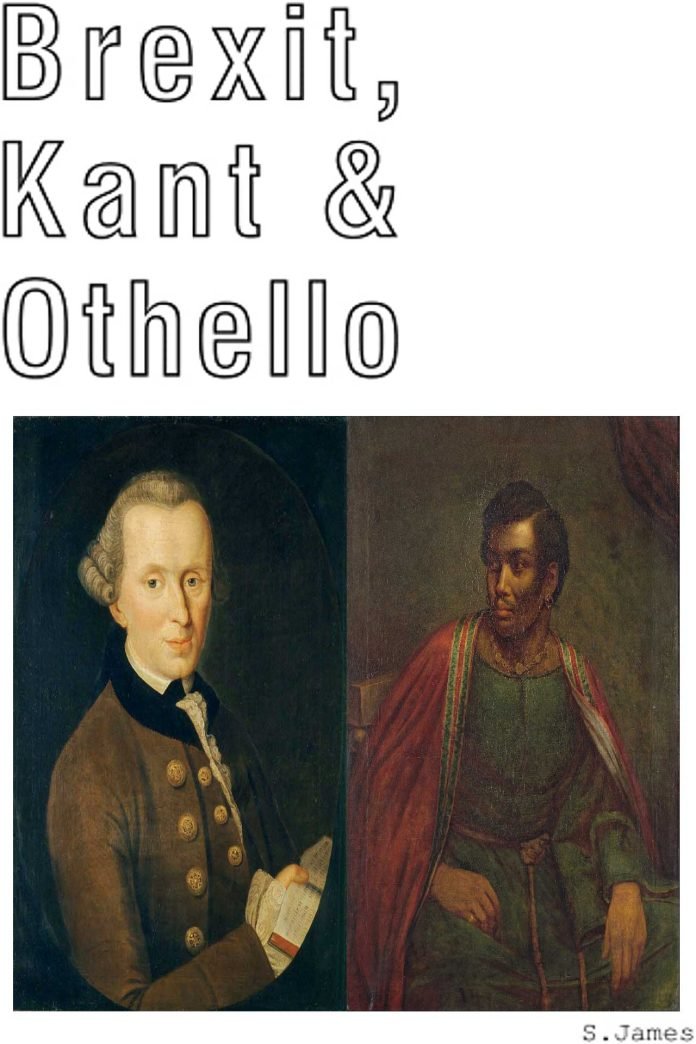Brexit, Kant & Othello: How Brexit was misunderstood, why you think the world is going mad, and what to do about it.
Author S. James delivers a thought-provoking and insightful analysis of the current political and social climate surrounding Brexit.
S. James masterfully dissects the perplexing phenomenon of Brexit, weaving together political analysis, philosophical inquiry, and literary references with razor-sharp wit and eloquence. The author delves into the heart of the Brexit conundrum, revealing how it has been fundamentally misunderstood by both its proponents and detractors.
Drawing on the works of “Immanuel Kant” and Shakespeare’s “Othello,” James delves deeper into the philosophical and psychological factors underlying Brexit and the wider societal trends that it reflects. He explores the themes of reason, emotion, identity, and power, showing how they shape our perceptions and actions in a complex and often contradictory world.

Throughout the book, James also draws on Shakespeare’s Othello to explore the psychology of populism and the ways in which political rhetoric can be used to manipulate and deceive. In this sense, James offers a timely reminder of the dangers of demagoguery and the importance of critical thinking and independent judgment in political decision-making.
James not only analyses Brexit but also critiques the vast material produced by “project fear.” By looking back at images of a dystopian Britain portrayed by the Remain media, he shows their contempt for the British people. Drawing on Othello, James asserts that we are all susceptible to irrationality and must acknowledge our biases to avoid succumbing to them.
Amidst the cacophony of opinions surrounding Brexit, James’ voice is a breath of fresh air, offering readers a lucid and thought-provoking analysis of the socio-political landscape. His incisive commentary cuts deep he breaks down the Remain argument with fact, wit, and statistical references.
The book examines the various misunderstandings and misrepresentations that have characterised the Brexit debate. James argues that the issue has been oversimplified and distorted by the media, politicians, and the public alike, leading to a polarised and often chaotic political environment.
What makes James’ book stand out is his nuanced and interdisciplinary approach. Rather than relying on simplistic slogans or partisan rhetoric, he draws on a range of sources from philosophy, literature, psychology, and politics to shed light on the complexity and ambiguity of Brexit and its broader implications.
For instance, he shows how Kant’s concept of the categorical imperative can help us navigate the ethical and moral dimensions of Brexit, while Shakespeare’s portrayal of jealousy and deception in “Othello” can help us understand the emotional and psychological factors that drive political behaviour.

Ultimately, James argues that the key to understanding and addressing the challenges of Brexit and the wider societal malaise lies in cultivating a new covenant for the people with real democratic representation by those we elect.
At the heart of James’ argument is the idea that reason, which Kant believed was essential to a just and peaceful society, has been eroded by post-truth politics and tribalism. The book criticizes the Remain camp for failing to make a rational case for staying in the EU, instead resorting to fear-mongering and elitism. James does a fantastic job of breaking down every false claim and argument made by the Remain side, I will certainly be keeping the book close at hand for reference when debating on the merits of democracy and Brexit.
It is a conceited belief that the Brexit decision was merely a consequence of a raw emotional outburst from certain pockets of society. James’ literary work, however, enlightens us on the rationality behind the choice, rooted in the principles of democracy.
The discontentment that brewed within the masses was not limited to one side of the debate, but a manifestation of their disillusionment with the entire system, fuelled by various socio-economic factors that have alienated them from the political elite. Brexit, in this context, serves as a symptom of a more profound societal ailment that can only be treated with the help of accountable democratic governance.
In the end, James concludes that the Brexit vote to leave was not a mere emotional whim by certain segments of the population but rather a reflective conclusion founded on democratic values.
What I appreciated most about this work was the author’s use of visual imagery to reinforce key points. The screenshots of news articles, designed to instil fear and doubt in readers’ minds, serve as stark reminders of just how easily we can be manipulated by the media.
While James’ analysis is thought-provoking and insightful, James suggests that we need to recommit ourselves to the values of reason, dialogue, and empathy, but he does not provide a concrete plan for achieving this but then again that is not within the book’s remit. Nevertheless, his book is a valuable contribution to the debate on Brexit and the state of the world, and it is sure to stimulate discussion and reflection among readers.
Overall, “Brexit, Kant & Othello” is a thought-provoking and timely book that deserves to be read by anyone interested in understanding the current state of the world. James’ analysis is both insightful and provocative, and his use of Kant and Shakespeare’s works adds depth and nuance to his arguments.
So if you’re looking for insights into why Brexit happened -and what it tells us about our world- then look no further than Brexit, Kant & Othello. It may just change your perspective on everything.
You can get yourself a copy at Amazon, follow the link.
Reviewed by Paul Knaggs, Labour Heartlands.
Support Independent Journalism Today
Our unwavering dedication is to provide you with unbiased news, diverse perspectives, and insightful opinions. We're on a mission to ensure that those in positions of power are held accountable for their actions, but we can't do it alone. Labour Heartlands is primarily funded by me, Paul Knaggs, and by the generous contributions of readers like you. Your donations keep us going and help us uphold the principles of independent journalism. Join us in our quest for truth, transparency, and accountability – donate today and be a part of our mission!
Like everyone else, we're facing challenges, and we need your help to stay online and continue providing crucial journalism. Every contribution, no matter how small, goes a long way in helping us thrive. By becoming one of our donors, you become a vital part of our mission to uncover the truth and uphold the values of democracy.
While we maintain our independence from political affiliations, we stand united against corruption, injustice, and the erosion of free speech, truth, and democracy. We believe in the power of accurate information in a democracy, and we consider facts non-negotiable.
Your support, no matter the amount, can make a significant impact. Together, we can make a difference and continue our journey toward a more informed and just society.
Thank you for supporting Labour Heartlands









